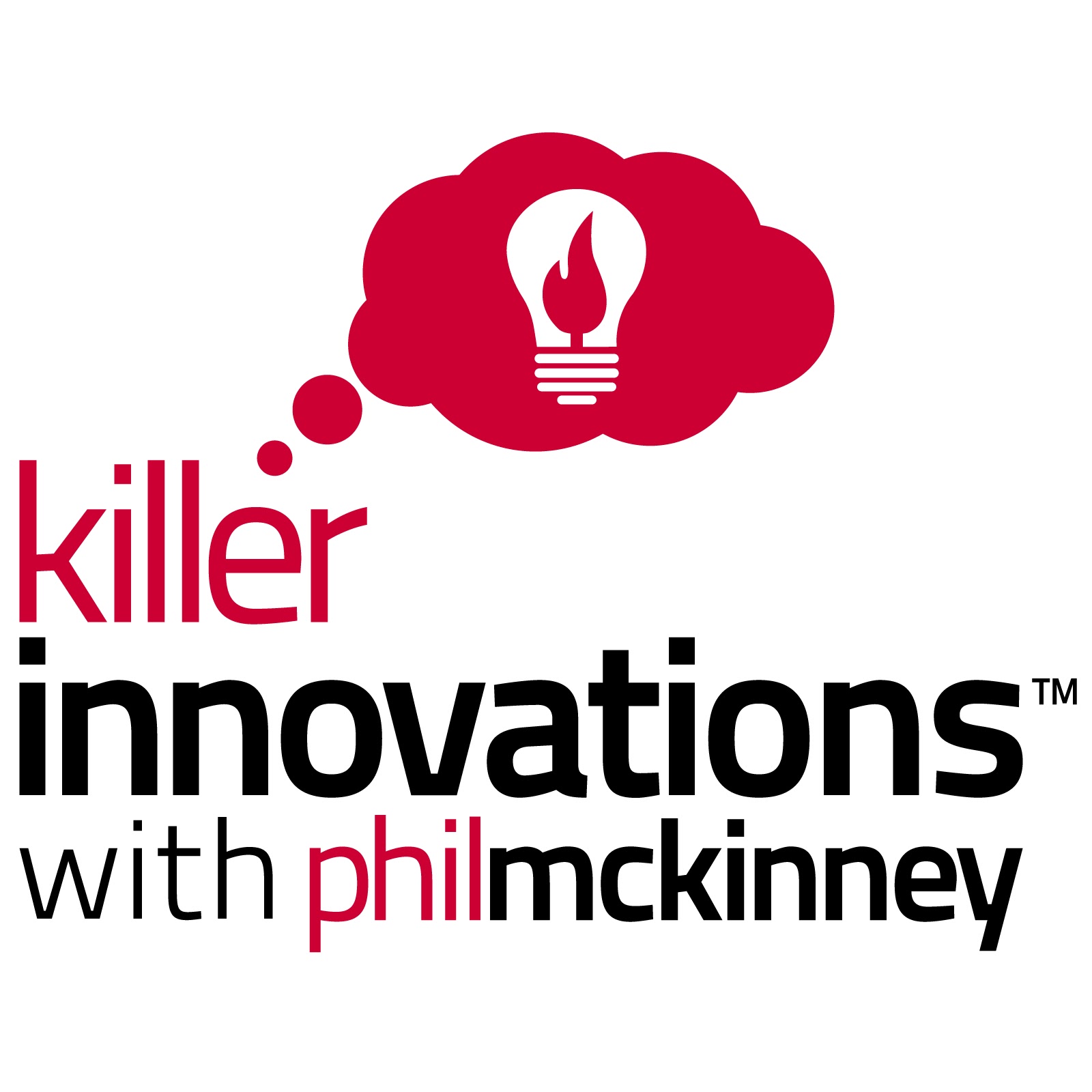
Innovation Lab vs. Innovation Studio – What is the Difference?

Killer Innovations with Phil McKinney - A Show About Ideas Creativity And Innovation
Shownotes Transcript
With innovation fast-evolving, the terms innovation lab and innovation studio are often thrown around interchangeably, especially in Silicon Valley. However, despite their seemingly similar purposes, these two entities serve distinct roles in the journey from idea to implementation. Understanding their nuances can help organizations choose the right approach for their goals.
What is an Innovation Studio?
Ideas take shape in an innovation studio and become tangible products or services. Studios focus on transforming concepts into reality with clear deliverables. They typically adopt a design-centric approach), making them creative allies in product development.
Key characteristics of an innovation studio include:
Focused Product Development: Studios concentrate on developing and launching new products or services, integrating seamlessly into existing business processes.
Design-Centric Approach: They use a design-driven methodology to solve problems, ensuring that the end product is functional and aesthetically pleasing.
Small to Medium Teams: Innovation studios often operate with small to medium-sized teams), allowing agility and swift iterations.
What is an Innovation Lab?
In contrast, an innovation lab constantly pushes the boundaries of what’s possible, serving as a playground for exploration. Labs dive into uncharted territories, experimenting with ideas that could redefine industries.
Key characteristics of an innovation lab include:
Experimental Freedom: Labs function independently from immediate business objectives, offering a safe space for radical experimentation and breakthroughs.
Long-Term Focus: Unlike studios, labs are not tied to specific products or services but aim for long-term exploration, often looking three to eight years into the future.
Significant Resources: Innovation labs typically require substantial investment in people, money, and ecosystem support, given the scope of their exploratory activities.
Innovation Studio vs. Innovation Lab: Which One Do You Need?
Deciding between an innovation studio and an innovation lab depends on your organization’s goals and resources.
An innovation studio is your best bet if you want to develop and launch a product with clear deliverables. It’s about taking ideas from concept to market with precision.
On the other hand, if your goal is to explore new technologies or business models without the pressure of immediate returns, an innovation lab provides the space and resources to experiment freely.
Real-World Examples
To put things into perspective, consider some real-world examples:
Innovation Labs: Amazon Lab126, HP Labs, and IBM Research are renowned for their deep exploratory work, often leading to groundbreaking innovations that shape entire industries.
Innovation Studios: IDEO, Frog Design, and Red Design are leaders in the innovation studio space, known for transforming creative ideas into market-ready products.
Conclusion
Both innovation labs and innovation studios play crucial roles in the innovation ecosystem), but they cater to different needs. Whether you need a structured approach to bring a product to market or a space to explore revolutionary ideas, understanding the difference between an innovation lab and an innovation studio will ensure you choose the right path for your organization’s innovation journey.
To learn more about the difference between an innovation studio and innovation lab, listen to this week's show: Innovation Lab vs. Innovation Studio – What is the Difference?).
.uc403f08ba9980fd549fc4d1d4a009c2f , .uc403f08ba9980fd549fc4d1d4a009c2f .postImageUrl , .uc403f08ba9980fd549fc4d1d4a009c2f .centered-text-area { min-height: 80px; position: relative; } .uc403f08ba9980fd549fc4d1d4a009c2f , .uc403f08ba9980fd549fc4d1d4a009c2f:hover , .uc403f08ba9980fd549fc4d1d4a009c2f:visited , .uc403f08ba9980fd549fc4d1d4a009c2f:active { border:0!important; } .uc403f08ba9980fd549fc4d1d4a009c2f .clearfix:after { content: ""; display: table; clear: both; } .uc403f08ba9980fd549fc4d1d4a009c2f { display: block; transition: background-color 250ms; webkit-transition: background-color 250ms; width: 100%; opacity: 1; transition: opacity 250ms; webkit-transition: opacity 250ms; background-color: #D35400; box-shadow: 0 1px 2px rgba(0, 0, 0, 0.17); -moz-box-shadow: 0 1px 2px rgba(0, 0, 0, 0.17); -o-box-shadow: 0 1px 2px rgba(0, 0, 0, 0.17); -webkit-box-shadow: 0 1px 2px rgba(0, 0, 0, 0.17); } .uc403f08ba9980fd549fc4d1d4a009c2f:active , .uc403f08ba9980fd549fc4d1d4a009c2f:hover { opacity: 1; transition: opacity 250ms; webkit-transition: opacity 250ms; background-color: #7F8C8D; } .uc403f08ba9980fd549fc4d1d4a009c2f .centered-text-area { width: 100%; position: relative; } .uc403f08ba9980fd549fc4d1d4a009c2f .ctaText { border-bottom: 0 solid #fff; color: #000000; font-size: 16px; font-weight: bold; margin: 0; padding: 0; text-decoration: underline; } .uc403f08ba9980fd549fc4d1d4a009c2f .postTitle { color: #FFFFFF; font-size: 16px; font-weight: 600; margin: 0; padding: 0; width: 100%; } .uc403f08ba9980fd549fc4d1d4a009c2f .ctaButton { background-color: #E67E22!important; color: #000000; border: none; border-radius: 3px; box-shadow: none; font-size: 14px; font-weight: bold; line-height: 26px; moz-border-radius: 3px; text-align: center; text-decoration: none; text-shadow: none; width: 80px; min-height: 80px; background: url(https://eadn-wc01-5964675.nxedge.io/wp-content/plugins/intelly-related-posts/assets/images/simple-arrow.png)no-repeat; position: absolute; right: 0; top: 0; } .uc403f08ba9980fd549fc4d1d4a009c2f:hover .ctaButton { background-color: #95A5A6!important; } .uc403f08ba9980fd549fc4d1d4a009c2f .centered-text { display: table; height: 80px; padding-left: 18px; top: 0; } .uc403f08ba9980fd549fc4d1d4a009c2f .uc403f08ba9980fd549fc4d1d4a009c2f-content { display: table-cell; margin: 0; padding: 0; padding-right: 108px; position: relative; vertical-align: middle; width: 100%; } .uc403f08ba9980fd549fc4d1d4a009c2f:after { content: ""; display: block; clear: both; } RELATED: Subscribe To The Killer Innovations Podcast)
